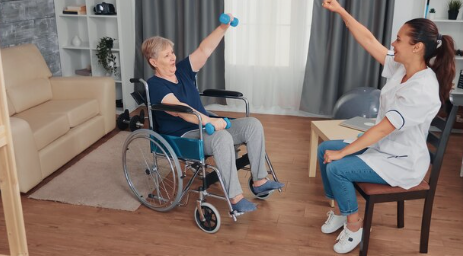- 1-905-452-8193
- Contact Us
- Member Login
- Get Listed Today
- 220,911 members

Living with multiple sclerosis (MS) can be challenging, but with a holistic approach to rehabilitation, it is possible to manage symptoms and improve overall quality of life. In this blog article, we will explore various aspects of MS rehabilitation and how a holistic approach can make a significant difference.
Before delving into the rehabilitation process, let's have a brief understanding of multiple sclerosis. MS is a chronic autoimmune disease that affects the central nervous system, causing a wide range of symptoms such as fatigue, muscle weakness, balance problems, and cognitive impairment. While there is no cure for MS, rehabilitation can help individuals manage their symptoms and maintain their independence.
When it comes to MS rehabilitation, a holistic approach that considers the physical, emotional, and mental aspects of the individual is essential. This approach focuses on the person as a whole, rather than just the symptoms of the disease. By addressing all aspects of well-being, individuals with MS can experience greater improvements in their overall health and function.
Physical rehabilitation plays a crucial role in managing the physical symptoms of MS. It involves various techniques and exercises to improve strength, balance, and mobility. Physiotherapy, occupational therapy, and hydrotherapy are some common components of physical rehabilitation for MS. These therapies aim to enhance muscle control, reduce spasticity, and improve overall physical function.
Living with a chronic condition like MS can take a toll on one's emotional and mental well-being. That's why addressing these aspects through rehabilitation is equally important. Counseling, support groups, and cognitive behavioral therapy can help individuals cope with the emotional challenges and cognitive changes associated with MS. By addressing these needs, individuals can develop effective strategies to manage stress, anxiety, and depression.
Adopting a healthy lifestyle is crucial for individuals with MS. Rehabilitation programs often include guidance on nutrition, exercise, and stress management. A well-balanced diet can support overall health and reduce inflammation in the body. Regular exercise, tailored to an individual's abilities, can improve strength, flexibility, and cardiovascular health. Stress management techniques, such as mindfulness and relaxation exercises, can also help individuals better cope with the challenges of living with MS.
Many individuals with MS may benefit from assistive devices and adaptive techniques to maintain independence and improve daily functioning. These devices can range from mobility aids, such as canes or wheelchairs, to tools that assist with activities of daily living, like dressing and cooking. Rehabilitation specialists can assess an individual's needs and recommend appropriate assistive devices and techniques to enhance their quality of life.
Taking a holistic approach to multiple sclerosis rehabilitation is essential for managing symptoms, improving function, and enhancing overall well-being. By addressing the physical, emotional, and mental aspects of the individual, individuals with MS can lead fulfilling lives despite the challenges they may face. If you or someone you know is living with MS, consider exploring the benefits of a holistic approach to rehabilitation. Remember, you are not alone, and there is support available to help you navigate this journey.
